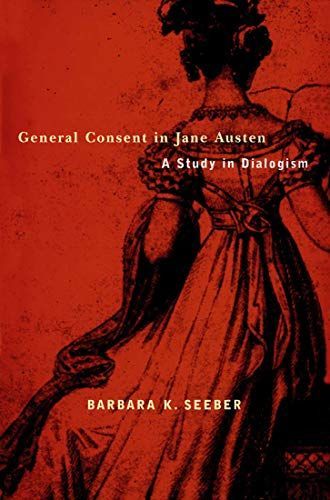
General Consent in Jane Austen A Study of Dialogism
Readings of Jane Austen tend to be polarized: she is seen either as conformist - the prevalent view - or quietly subversive. In General Consent in Jane Austen Barbara Seeber overcomes this critical stalemate, arguing that general consent does not exist as a given in Austen's texts. Instead, her texts reveal the process of manufacturing consent - of achieving ideological dominance by silencing dissent. Drawing on the theories of Mikhail Bakhtin, Seeber interrogates academic and popular constructions of Jane Austen, opening up Austen's "unresolvable dialogues."